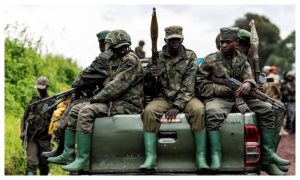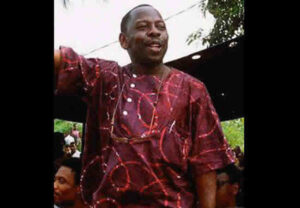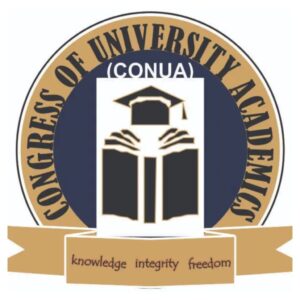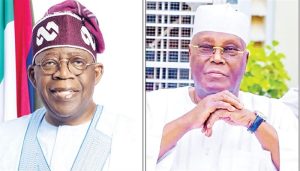![[PHOTOS] Kwara CDHR Celebrates June 12 With Robust Training, Commemoration](https://newsbulletin.com.ng/wp-content/uploads/2025/06/1749808160417.jpg)
…..Calls for Deepened Democracy
The Kwara State chapter of the Committee for the Defence of Human Rights (CDHR) marked Nigeria’s Democracy Day on Thursday, June 12, 2025, with an extensive training session and commemoration event at the Rural Electricity Board (REB) Hall, opposite the NEPA Office, Ita Alamu, Ilorin.
The programme brought together a diverse assembly of civil society organizations, human rights activists, labour leaders, and members of the public to reflect on Nigeria’s 26 years of uninterrupted democratic governance and chart a path for its sustenance.
The event, themed around deepening democratic values and civic responsibility.
It featured a keynote lecture by Comrade Idris Afees Olayinka, CDHR National Publicity Secretary who represented CDHR National President Comrade Debo Adeniran, alongside contributions from prominent figures, including Comrade Issa Aremu, Director General of the Michael Imoudu National Institute for Labour Studies (MINILS), Ilorin, and other guest speakers.
This reflected CDHR’s commitment to defending human rights and fostering a society rooted in justice, equity, and freedom.
In his keynote address titled The Historical Background of the Committee for the Defence of Human Rights (CDHR) in Nigeria, Olayinka provided a detailed account of CDHR’s 36-year journey, tracing its origins to April 1989 when a group of activists rallied to secure the release of trade unionist Barrister Femi Aborisade, detained by General Ibrahim Babangida’s military regime under the notorious State Security Decree No. 2 of 1984.
“It began as a small campaign but grew into a formidable human rights platform open to all Nigerians, irrespective of ethnic, religious, or political affiliations,” Olayinka said.
He highlighted the pivotal roles of founding members such as Dr. Beko Ransome-Kuti, who staged a one-man protest at Tinubu Square, Lagos, for Aborisade’s release, and Owei Lakemfa, who, alongside Comrade Lanre Arogundade and others, formed a campaign committee that evolved into CDHR.
Prominent figures like Femi Falana, Femi Ojudu, and Chief Gani Fawehinmi provided pro bono services, while activists like Oladipo Fashina, Ngozi Iwere, and Kwara’s own Comrade Idris Saka contributed to the organization’s growth.
“CDHR became the secretariat of the 1990 national conference and a key force in the Campaign for Democracy (CD), which compelled Babangida to step down in 1993,” Olayinka noted.
He also outlined CDHR’s landmark achievements, including legal victories in cases like Akinola Oladipupo Akinwumi v. WAEC, where the court upheld the right to a fair hearing, and Muhammed Garuba & Others v. Attorney General of Lagos State, which protected underage convicts from execution.
Comrade Afolabi Lukman, Kwara CDHR State Chairman, set the tone for the event, emphasizing its dual purpose of commemoration and capacity building.
“June 12 is a symbol of our collective struggle for justice, equity, and democratic freedom. Today’s training is designed to equip participants with the knowledge and tools to sustain and defend our democratic values,” Lukman declared.
He urged attendees to leverage the session to strengthen their advocacy for good governance and human rights, reinforcing CDHR’s role as a grassroots movement independent of external funding.
Lukman praised the resilience of Nigerians in upholding democracy despite challenges, noting that CDHR’s efforts have curtailed impunity, such as indiscriminate detentions and restrictions on free speech.
“While we have not fully attained the dividends of democracy, the unrelenting pressure from civil society ensures better days are ahead,” he said, rallying participants to remain vigilant in holding the government accountable.
Comrade Issa Aremu, MINILS Director General who was represented by Alhaja Balikis Alaya called for deepened workplace democracy to complement Nigeria’s political progress.
Reflecting on 32 years since the annulled June 12, 1993, presidential election won by Chief Moshood Abiola, Aremu cited democratic milestones, including four national minimum wage adjustments since 1999: ₦5,500 in 2000, ₦18,000 in 2011, ₦30,000 in 2019, and ₦70,000 in 2024 under President Bola Tinubu.
“The establishment of the National Commission for Persons with Disabilities (NCPWD) in 2020 is a testament to our commitment to inclusivity,” Aremu said, adding that President Tinubu’s Renewed Hope Agenda has spurred labour market activism through initiatives like the 2.5 million Labour Employment and Empowerment Programme (LEEP) and the deployment of 774 health fellows.
However, he stressed the need for mass education on collective bargaining to sustain these gains, with MINILS ready to facilitate stakeholder engagement.
Aremu lamented global workplace democracy violations, such as restrictions on workers’ rights, cyberbullying, and sexual harassment, which contravene labour laws and ILO conventions.
“Deepening workplace democracy is critical to national development,” he urged.
Dr. Babatunde Sanusi Muse, a retired senior lecturer from Kwara College of Education, Oro, spoke on Notable Areas of Collaboration between CDHR Kwara Branch and the State Government in the Delivery of the Dividends of Democracy to Kwarans.
He highlighted joint efforts in promoting good governance and addressing human rights abuses, urging sustained partnerships to enhance service delivery.
Comrade Mrs. Taiwo Ojuolape Akinyemi, Kwara CDHR State Treasurer, delivered a passionate address on The Role of Women in Kwara State CDHR Activism, asserting, “What a man can do, a woman can equally do better.”
She showcased women’s contributions to CDHR’s campaigns, including advocacy against child abuse and human trafficking, and called for greater gender inclusivity in activism.
Ridwan Musa Esq, Kwara CDHR Legal Adviser, spoke on Human Rights and Judicial Power, emphasizing the judiciary’s role in upholding fundamental rights.
He cited CDHR’s legal interventions as critical to ensuring justice for victims of abuse, urging lawyers to prioritize pro bono services for the marginalized.CDHR’s Organizational StrengthOlayinka detailed CDHR’s structure, rooted in its constitution, the African Charter on Human and Peoples’ Rights, and the Universal Declaration of Human Rights.







